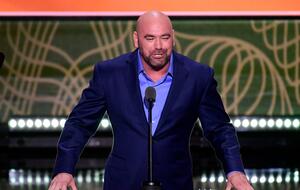The country's leader will raise his concerns in a meeting with government officials regarding Mark Zuckerberg's firm's decision to follow in the footsteps of Elon Musk's micro-blogging platform X (formerly Twitter) and swap out its fact-checking programme in the US for community notes.
He told reporters: "I'm going to have a meeting today to discuss the Meta issue.
"I think it's extremely serious that people want digital communication to not have the same responsibility as someone who commits a crime in the written press."
It comes after Brazil temporarily suspended X in Brazil for failing to comply with the court orders, including allowing hate speech on the app.
On Wednesday (08.01.25), Brazilian judge Alexandre de Moraes warned: "In Brazil, (the companies) will only continue to operate if they respect Brazilian legislation, regardless of the rant of Big Tech managers."
The 40-year-old Meta CEO believes the current process is “too politically biased”, arguing that fact-checkers have “destroyed more trust than they have created”.
In a video accompanying a blog post, Zuckerberg said: “We’re going to get rid of fact-checkers and replace them with community notes similar to X, starting in the US…
“The fact-checkers have just been too politically biased and have destroyed more trust than they have created – especially in the US.
“Over the next couple of months, we’re going to phase in a more comprehensive community notes system.”
The billionaire businessman intends to work more closely with the US government in a bid to protect freedom of expression.
Zuckerberg added: “The US has the strongest constitutional protections for free expression in the world.
“Europe has an ever-increasing number of laws institutionalising censorship and making it difficult to build anything innovative there.
"Latin American countries have secret courts that can order companies to quietly take things down.
"China has censored our apps from even working in the country.
"The only way we can push back on this global trend is with the support of the US Government. And that’s why it’s been so difficult over the past four years when even the US Government has pushed for censorship.
"By going after us and other American companies, it has emboldened other governments to go even further.
"But now, we have the opportunity to resort to free expression, and I am excited to take it."
The social media mogul has also announced plans to “simplify” content policies and to “get rid of a bunch of restrictions on topics, like immigration and gender that are just out of touch with mainstream discourse."





